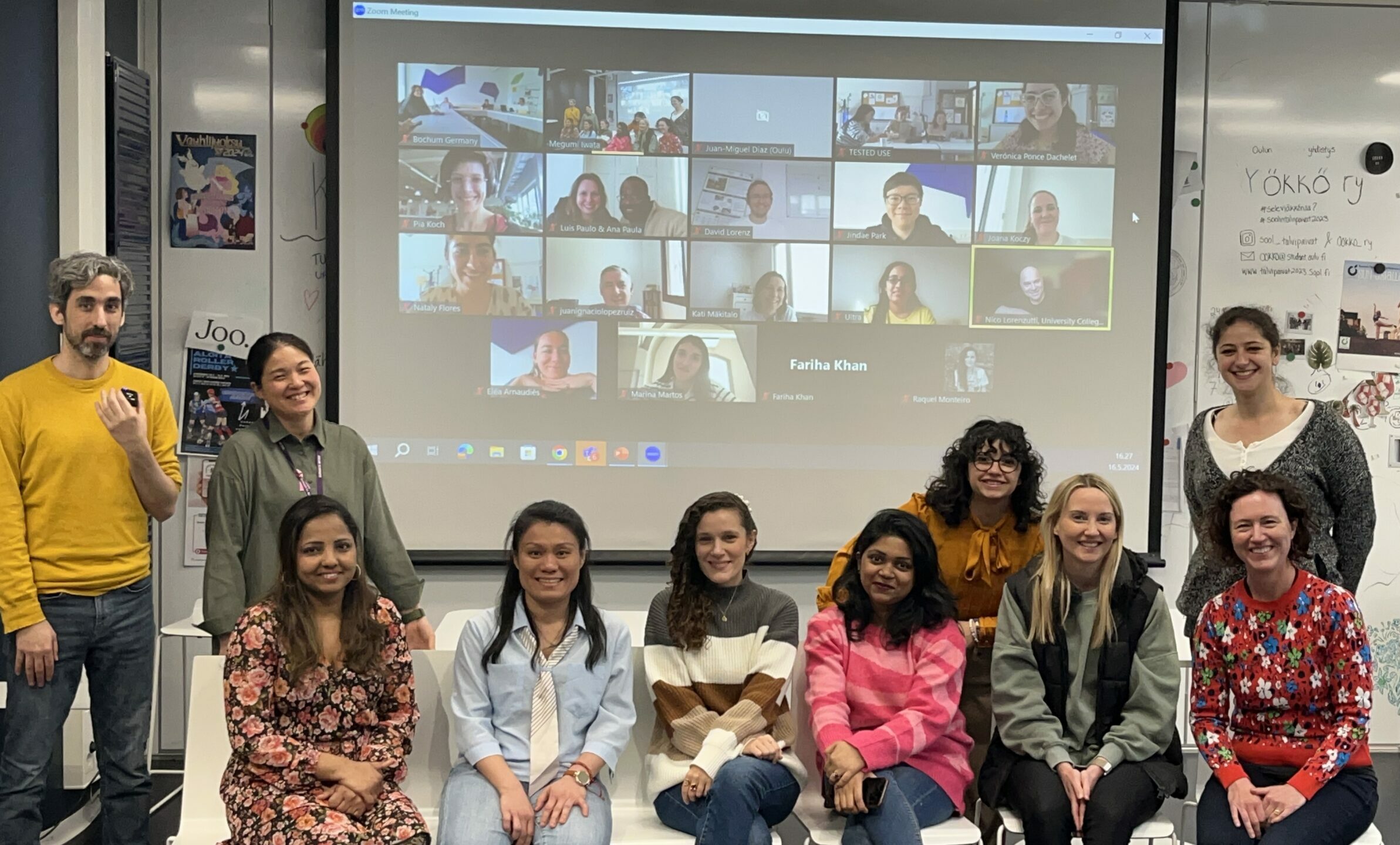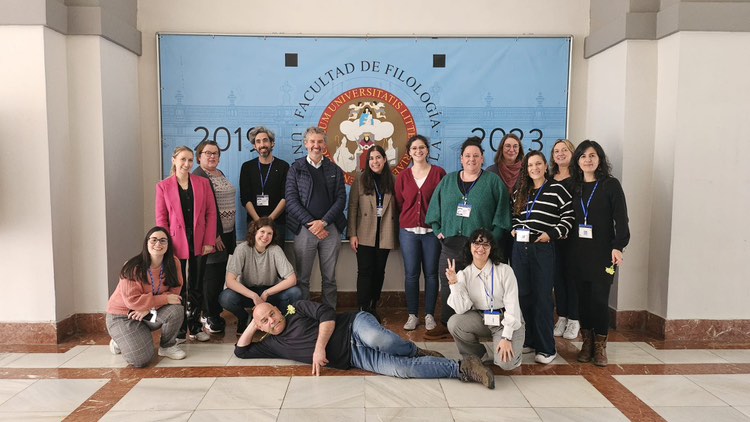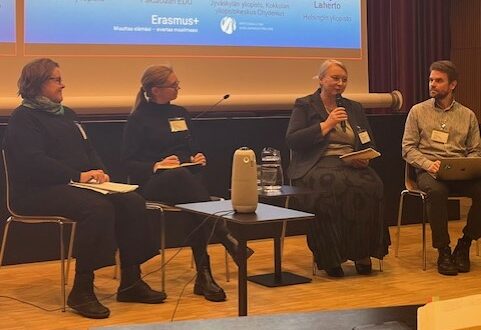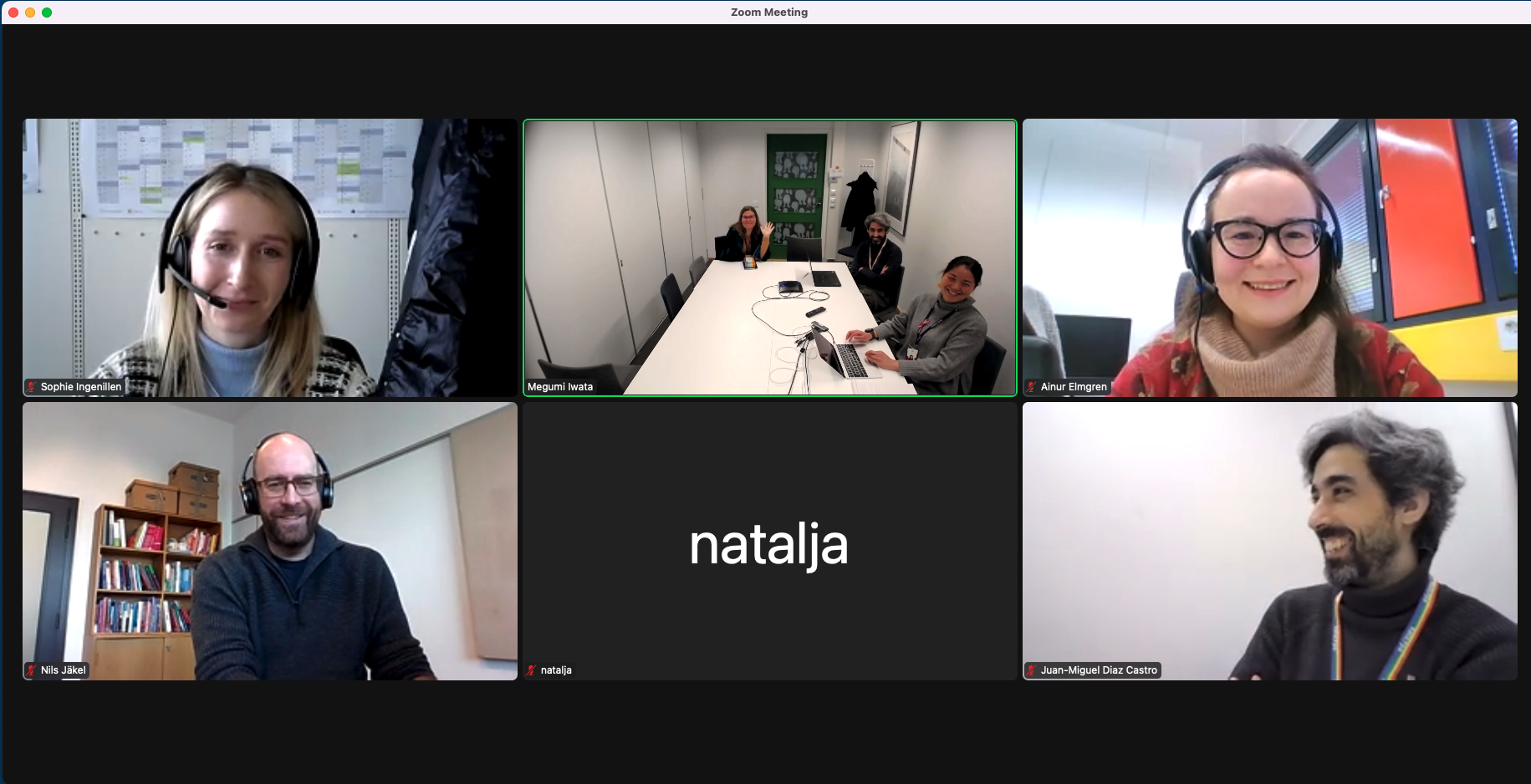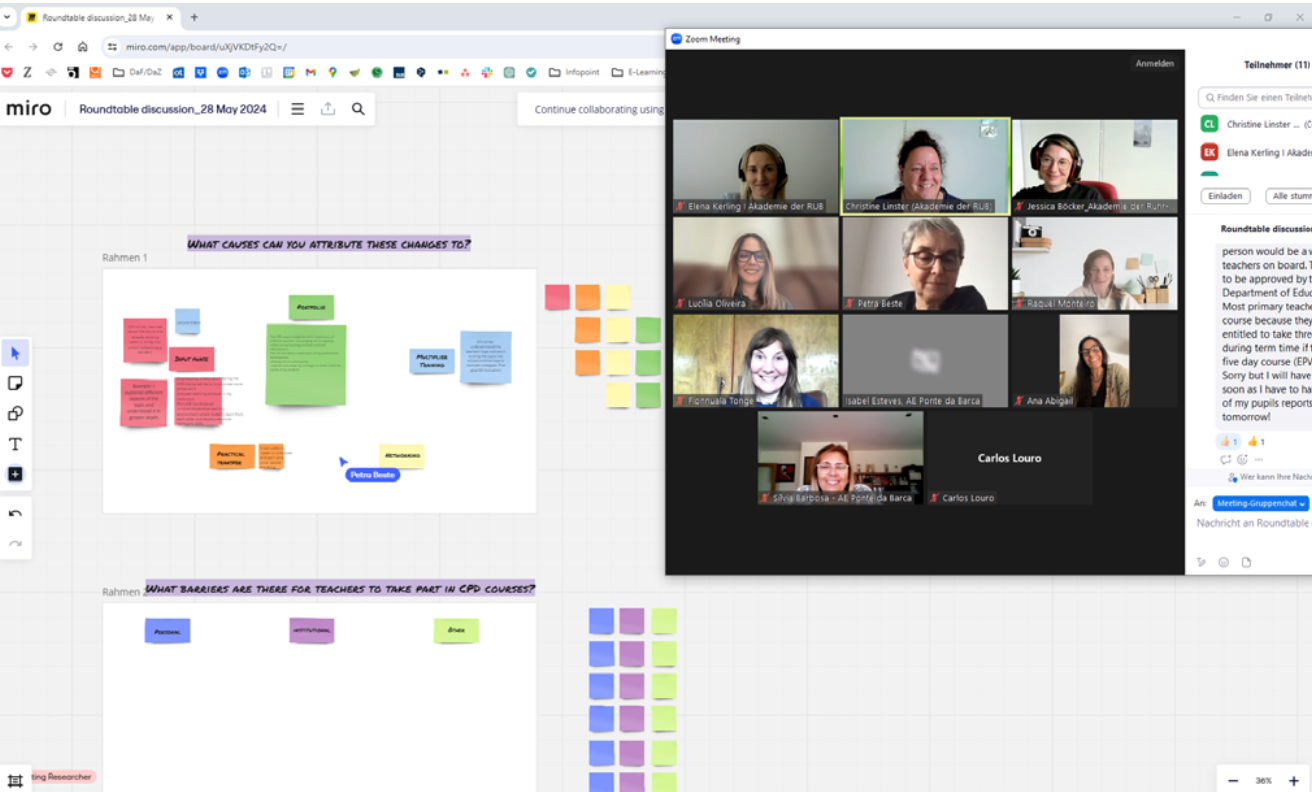
Content and Language Integrated Learning in German
Part 1 - The Syllabus: emerging topics on multilingualism
Lecturer: Prof. Dr. Björn Rothstein
Institution: Ruhr University Bochum, Germany
Runtime: 00:09:38
Licence: CC-BY-SA 4.0
Upload: 30.07.2024
Description
Björn Rothstein explores Content and Language Integrated Learning (CLIL) in the German education system, highlighting it as an approach to promote multilingualism. He outlines the Syllabus developed as part of the TESTEd project, focusing on the promotion of heritage languages, trauma-informed teaching and linguistically responsive content.
In his lecture he stresses the importance of integrating multilingualism into education, addresses the challenges faced by teachers and discusses strategies for integrating heritage languages.
He also addresses the need for trauma-informed teaching for migrant pupils and the importance of combining language learning with content-based teaching while sharing insights from the German education system and its relevance in an international context.
The video was recorded on 24 April 2024 as part of the TESTEd lecture series. It is part one of a three-part series on “Content and Language Integrated Learning in German”.
Show notes
- TESTEd Project. Online: https://tested-network.eu/.
Content and Language Integrated Learning in German
Part 2 - Content and Language Integrated Learning in German
Lecturer: Prof. Dr. Björn Rothstein
Institution: Ruhr University Bochum, Germany
Runtime: 00:31:20
Licence: CC-BY-SA 4.0
Upload: 30.07.2024
Description
Björn Rothstein begins by using the book “From Seed to Plant” to illustrate how CLIL can be effectively implemented in classrooms. Participants explore the book’s themes in breakout sessions, highlighting how CLIL combines content learning (e.g., biology, geography) with language acquisition. Björn Rothstein stresses that understanding subject matter often requires mastering the language used to discuss it.
In his lecture, Björn Rothstein also covers different models of integrating new students into German schools, the importance of providing vocabulary support, and challenges in language education, including social and emotional factors affecting language learning for L2 students.
The video was recorded on 24 April 2024 as part of the TESTEd lecture series. It is part two of a three-part series on “Content and Language Integrated Learning in German”.
Show notes
- Gibbons, G. (1991). “From Seed to Plant”.
- Marsh, D. et al. (2010). “European Framework for CLIL Teacher Education: A Framework for the Professional Development of CLIL Teachers. Graz: European Centre for Modern Languages”.
- Wolff, D. (2012). “Content and Language Integrated Learning (CLIL)”.
- Schmiedebach, M.; Wegner C. (2021). “Content and Language Integrated Learning for Recently Immigrated Students – Benefits of a Short-Term Intervention for Content and Language Skills”.
- PISA-results 2022 for reading (Germany). Online:
https://www.oecd.org/media/oecdorg/satellitesites/berlincentre/pressethemen/GERMANY_Country-Note-PISA-2022_DEU.pdf. - Feilke, H. (2012). „Bildungssprachliche Kompetenzen – fördern und entwickeln“.
Content and Language Integrated Learning in German
Part 3 - Examples of CLIL teaching and learning
Lecturer: Prof. Dr. Björn Rothstein
Institution: Ruhr University Bochum, Germany
Runtime: 00:35:36
Licence: CC-BY-SA 4.0
Upload: 30.07.2024
Description
Björn Rothstein presents four different examples of Content and Language Integrated Learning (CLIL) in the German education system. He covers key methods for integrating language and content teaching, focusing on lexical, reading, writing and speaking training.
Presented formats of lexical training include engaging stories and practical teaching methods. Björn Rothstein introduces reciprocal teaching for reading, emphasising the stages of pre-reading, reading and post-reading to improve comprehension.
In his lecture, he also touches on dialogic teaching methods to promote effective communication and argumentation skills among students. By encouraging student-to-student interactions and exploratory conversations, he demonstrates how collaborative learning can enhance students’ understanding and use of language in scientific and other academic contexts.
The video was recorded on 24 April 2024 as part of the TESTEd lecture series. It is part three of a three-part series on “Content and Language Integrated Learning in German”.
Show notes
- De Lestrade, A.; Docampo, V. (2010). “Phileas´s Fortune. A Story About Self-Expression”.
- Härtig, H.; Stosik, T. (2015). „Wortschatztraining im Physikunterricht“.
- Leseprobe aus Baltscheit. „Die Geschichte vom Löwen, der nicht schreiben konnte“. Online: http://www.beltz.de/de/nc/verlagsgruppe-beltz/gesamtprogramm.html?isbn=978-3-407-76056-2.
- Palinscar, A. S.; Brown, A. L. (1984). “Reciprocal teaching of comprehension-fostering and monitoring activities”. https://doi.org/10.1207/s1532690xci0102_1.
- Literacy Please (2021). “Reciprocal teaching”. Online: https://literacyplease.com/product/reciprocal-teaching-for-beginning-readers/.
- Kuhn, D. et al. (2013). “Developing norms of argumentation: Metacognitive, epistemological, and social dimensions of developing argumentive competence”. https://doi.org/10.1080/07370008.2013.830618.
- Shi, Y. et al. (2019). „Dialog as a bridge to argumentative writing”. https://doi.org/10.17239/jowr-2019.11.01.04.
- Mercer, N. et al. (2004). “Reasoning as a scientist: Ways of helping children to use language to learn Science”. https://doi.org/10.1080/01411920410001689689.

